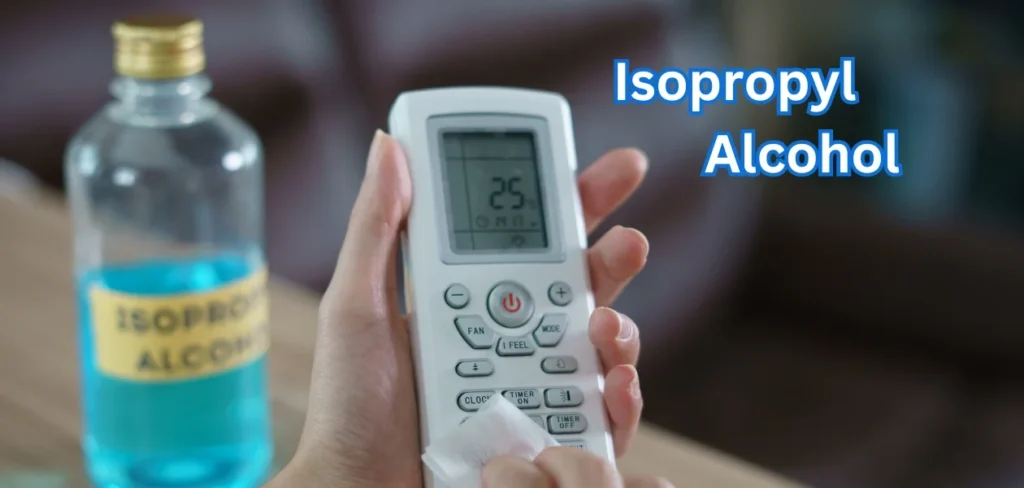Does isopropyl alcohol expire, but the shelf life of unopened containers is long, and under ideal storage conditions, it can last for several years. The expiration date is usually listed on the packaging bottle or label and may vary depending on the manufacturer. The isopropanol in the solution will start to evaporate every time the liquid is exposed to air, and the percentage of alcohol in the liquid will decrease over time, lowering the concentration of the solution.

As a result, the solution will become weaker and less reliable when it comes to carrying out the tasks it was designed to do. If the solution has been purchased as a disinfectant, for example, it might be less likely to kill all germs and bacteria on a surface if it’s being used past its expiration date. It is recommended to avoid using expired rubbing alcohol for medical applications, such as tending a wound or prior to an injection.
What is Isopropyl Alcohol?
Isopropyl alcohol, also known as rubbing alcohol, is a colorless, flammable organic compound with a pungent alcoholic odor. It is a solvent and disinfectant that is used in the manufacture of a wide variety of industrial and household chemicals. Isopropyl alcohol is miscible in water, ethanol, and chloroform, as it is an organic polar molecule. It dissolves ethyl cellulose, polyvinyl butyral, many oils, alkaloids, and natural resins. Isopropyl alcohol is used in many products such as disinfectants, hand sanitizer, and detergents.
It is also used to remove brake fluid traces from hydraulic braking systems and as a windshield or door lock de-icer. Isopropyl alcohol does expire, and the expiration date is usually listed on the packaging bottle or label. The percentage of alcohol in the liquid will decrease over time, lowering the concentration of the solution. As a result, the solution will become weaker and less reliable when it comes to carrying out the tasks it was designed to do. It is recommended to avoid using expired rubbing alcohol for medical applications, such as tending a wound or prior to an injection.
Can isopropyl alcohol expire
Yes, isopropyl alcohol (rubbing alcohol) can indeed expire, although its shelf life is relatively long compared to some other substances. Expiration refers to the point at which the chemical properties begin to change due to factors like oxidation, evaporation, or contamination, making the substance less effective for its intended purposes. Here are some key points about the expiry of isopropyl alcohol:
Shelf Life:
Unopened bottles of isopropyl alcohol typically have a shelf life ranging between two to three years, sometimes longer depending on the specific product and storage conditions. However, once opened, the rate of evaporation increases, causing the concentration of the active ingredient to drop over time.
Evaporation:
When isopropyl alcohol is exposed to air, it starts to evaporate, leading to a reduction in the overall concentration of the solution. This process causes the effectiveness of the solution to decline, especially if the container is not sealed properly after use.
Expiration Date:
Manufacturers often include an expiration date on the packaging to indicate when the product should no longer be used for its intended purpose. For instance, if you’re purchasing isopropyl alcohol as a disinfectant, it would be best to use it before the expiration date to ensure maximum efficacy against pathogens.
Recommendations:
To maintain the quality and effectiveness of isopropyl alcohol, store it in a cool, dry place away from direct sunlight and heat sources. Keep the lid tightly closed whenever possible to minimize evaporation and prolong the shelf life of the product. Avoid using expired rubbing alcohol for medical applications, such as cleaning wounds or administering medication through injections.
In summary, while isopropyl alcohol doesn’t spoil quickly, it does expire, and its effectiveness decreases over time. Proper storage and handling practices help extend the usefulness of this versatile chemical compound.
Does isopropyl alcohol expire if not opened
While isopropyl alcohol (rubbing alcohol) generally maintains its potency for an extended period, it can still expire, even if the container remains unopened. The
following information provides insights into why isopropyl alcohol expires, despite
remaining untouched:
Chemical Properties: Over time, isopropyl alcohol begins to break down naturally due to various chemical reactions, including oxidation. These processes cause changes in the molecular structure of the compound, reducing its effectiveness.
Storage Conditions:
Even though the container is sealed, exposure to temperature fluctuations, humidity, and light can accelerate these chemical reactions, resulting in a shorter shelf life than expected.
Evaporation:
Although the container is not open, isopropyl alcohol continues to evaporate slowly over time, particularly when stored in warm environments. This process reduces the concentration of the active ingredient within the solution, affecting its performance.
Expiration Date:
Despite not having been opened, manufacturers provide an expiration date on the packaging to inform consumers when the product should no longer be used for its intended purpose. This date ensures that users receive the highest level of effectiveness from their isopropyl alcohol.
Prolonged Shelf Life:
By storing isopropyl alcohol in optimal conditions—a cool, dark area free from excessive moisture and temperature variations—the shelf life of the product can be significantly increased.
How to Dispose of Expired Isopropyl Alcohol Safely?
When you find yourself with expired rubbing alcohol, there are several safe and environmentally friendly ways to dispose of it. Here are some recommended methods for handling expired rubbing alcohol:
1. Contact Local Waste Management:
Check with your local waste management facility to inquire about their guidelines for disposing of expired rubbing alcohol. They may have specific instructions on how to safely discard it.
2. Dilution and Disposal:
You can dilute the expired rubbing alcohol with water to reduce its potency before disposing of it. This can help minimize its impact on the environment.
3. Hazardous Waste Collection:
If your area offers hazardous waste collection services, consider utilizing this option to dispose of the expired rubbing alcohol properly. This ensures that it is handled and disposed of in a safe and regulated manner.
4. Evaporation:
Another method is to pour the expired rubbing alcohol into a container and leave it open in a well-ventilated area. Over time, the alcohol will evaporate, leaving behind a residue that can be disposed of according to local regulations.
5. Seek Professional Advice:
If you are unsure about how to dispose of expired rubbing alcohol safely, consider consulting with a local environmental agency or professional for guidance on proper disposal methods.
By following these recommendations, you can ensure that your expired rubbing alcohol is disposed of responsibly and in accordance with environmental regulations, helping to protect both your health and the environment.
How long is rubbing alcohol good after expiration date
The shelf life of rubbing alcohol, also known as isopropyl alcohol, can vary depending on the manufacturer and storage conditions. The expiration date is usually listed on the packaging, and it is essential to check it before using the product. Once the expiration date has passed, the effectiveness of the rubbing alcohol may decrease, and it may not be as potent as it once was. However, the exact length of time that rubbing alcohol remains good after the expiration date can vary.
Unopened bottles of rubbing alcohol can last for two to three years or more, depending on the storage conditions. Once opened, the alcohol will start to evaporate, causing the concentration of the solution to decrease over time. This process can make the rubbing alcohol less effective, even before the expiration date has passed.
It is important to note that the expiration date is not a hard and fast rule. The rubbing alcohol may still be effective after the expiration date, depending on how it has been stored and how long it has been since the expiration date. However, it is recommended to avoid using expired rubbing alcohol for medical applications, such as cleaning wounds or administering medication through injections.
Conclusion
Based on the information gathered, isopropyl alcohol, commonly known as rubbing alcohol, can expire, but the process differs from many other substances. Isopropyl alcohol is a stable compound that does not typically break down after its expiration date. Even if the container remains unopened, some alcohol may escape over time, leading to a decrease in concentration and potential leaching of plastic from the container into the solution.
While the expiration date is often a commercial requirement rather than an indication of stability, it serves as a guideline for users. The effectiveness of rubbing alcohol may diminish after the expiration date due to evaporation and potential contamination.
However, in many cases, expired rubbing alcohol can still be useful for cleaning and sanitizing purposes. It is advisable to check the expiration date on the packaging and consider factors like storage conditions before deciding whether to use expired rubbing alcohol. Proper disposal methods should be followed to ensure safe handling of expired isopropyl alcohol.


